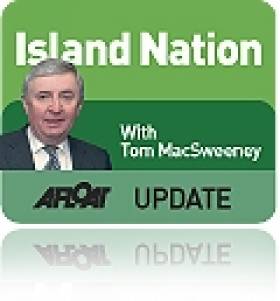Displaying items by tag: Blueprint
Ports Must Not be Sold
Over 90 per cent of the nation's exports and imports move by sea. Our ports are the essential avenue, the doors to Ireland. They are the property of the nation and must work for the people, whose future has been destroyed by the greed of private interests. To suggest that recovery can be achieved by sale of these vital assets is a nonsense and damaging to the interests of the nation.
What is needed is a clear, definitive national ports policy in which the government sets down what the ports are to do for the nation. Their role should be identified clearly, their boards and managements told what they are expected to achieve on behalf of the nation, with penalties for failure.
Fine Gael had committed in its election manifesto, to replacing the existing boards of all State Port companies and Harbour Commissioners within one year of entering government.
Fianna Fail and the Progressive Democrats in government had turned the port companies into semi-private entities, responsible for their own financial operations. While it was indicated that this would improve competitiveness and provide better and more cost-friendly services for users, who would be represented on the company boards, there are differing views about how effective this has been.
Competition is not necessarily always the harbinger of effective service or provision of choice. A small island nation with a limited number of primary ports could have a policy maximising effectiveness, delineating between primary and minor ports providing commercial services, supporting the fishing industry and leisure sectors. There must be containment of costs, efficiency of operation and the best services for exporters and importers. There should be investment where required and could even be provision for private investment. But the ownership should remain with the State on behalf of the people.
The ports are national resources, not to be sold off to private interests.
Those who drew up the recovery report which proposes the sale of the ports represented private interests and included are banking and speculative development interests. They echo, in regard to the ports, a similar proposal in the 'second coming' of Bord Snip Nua'. There are some aspects of their suggestions which merit further consideration, but it is regrettable that people at high levels of position in Ireland appear to not fully appreciate that the nation is a small island for whom the sea and its approaches are of vital importance.





























































